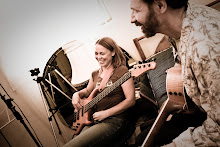
Here is the great altar where six centuries later Pius XII anointed Napoleon on a cold, clear day, three weeks before Christmas, 1804. He became our emperor in the moment he crowned himself and his poplar wife Josephine. I watched from within this portal, pressed to a leather and studded oaken door before the great stench and exhalation of a populace grateful, after fifteen years of unpredictable brutality, to once again have a consecrated ruler. The cathedral had been scrubbed and dressed. Gone was the severity of a temple dedicated to the Cult of Reason and the Cult of Supreme Being, though statues of biblical kings remained headless.
I was cautiously optimistic. The empire was secure and expanding. I married Anne-Marie-Josephine, sister of my good friend [and great-great-great grandfather in this lifetime Jean-Joseph]. I admired the family. They were efficient and musical. Artistic and adventuresome. Their name was a marriage of two words: famille and mere. This could be translated as “family of the mother” or “family of the sea.” Or both. I certainly considered them a tribe, a Mediterranean and, lately, Norman tribe embraced by the sea. A brother had already left for Quebec to follow an uncle; others had been planning to settle in the wilderness of new France. This, of course, would be delayed since Napoleon, to finance his wars, had sold one third of the North American continent to President Jefferson the previous year. The Louisiana Purchase may be the most foolish real estate transaction in French history; it certainly changed our plans. Military initiatives failed, and we were subjected to two decades of misery and national embarrassment.
Half a century later, Jean-Baptiste, our nephew (Jean’s fourth son), allowed his mustache full sail, arrived finally to Ellis Island on the Gertrude, May 13, 1856, and continued west to homestead 40 acres deeded by President James Buchanan in the new state of Wisconsin. [His great-great-granddaughter Jeanne holds the deed and inhabits the wooden house built around the original cabin of hand hewn logs.]

Before my daeth, I returned to Notre Dame with my grandson who was chivalric and impertinent. [He actually reminded me of myself one century later; his sensitive soul bound to a societal disillusionment which wore the alternating masks of anger and cynicism.]
The cathedral had been restored--therefore, saved from destruction--by France’s celebrated architects Eugene Viollet-le-Duc and Jean-Baptiste-Antoine Lassus only to be violated again by a bonfire of chairs in its belly started by rabble of the communard. Philippe explained this to me jeeringly. It was an angry time. He despised the Prussians and distrusted our government. We all did.

Later, that summer, voracious fires crossed Green Bay, Wisconsin, destroying much of the Walloon community, and, further south, decimated a settlement barely thirty-five years old, named after the native word for swamp onion, Chicago. Progressively, Philippe left his circle of friends, including a Belgian poet and French poet (Verlaine, a second cousin) who were dangerously provocative, and followed sturdier cousins (stone masons and carvers of marble) to help rebuild the new world from ashes. His eldest cousin Jean-Joseph (second son of Jean-Joseph’s youngest son Constant and named for his father’s father) settled in Chicago. [His grandson would be named Richard as would be his son. I am that son.]
La portail (de la Vierge) [#29]
© 2009 Fammerée
* * * * *
Richard Fammerée
fammeree@att.net
director@universeofpoetry.org
* * * * *

















No comments:
Post a Comment